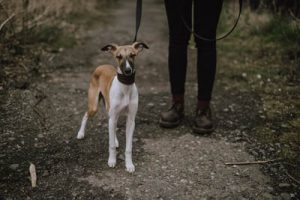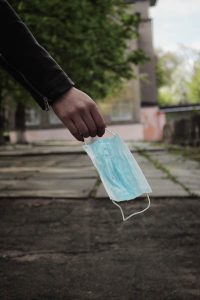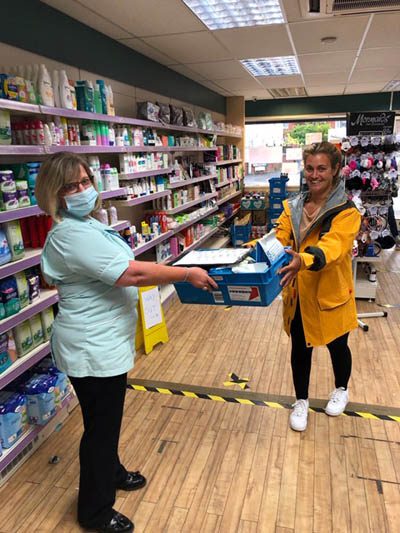Part One: The Formation of an Action Group
The Covid-19 pandemic is the worst global crisis since the Second World War. It’s the worst worldwide epidemic since the influenza pandemic, which lasted from spring 1918 to the early summer of 1919.
The Beginning
Against a background of frightening television footage showing the impact of the virus around the world, the Prime Minister, Boris Johnson, issued a “Stay at Home” notice to the nation on 23rd March. The devolved Governments of Wales, Scotland and Northern Ireland issued similar instructions.

The whole of the UK was under “lockdown”. In due course, citizens received a letter from the Prime Minister with an enclosed leaflet stating that to protect the NHS and save lives, they should only leave the house for minimal reasons. This decision raised grave concerns about how vulnerable residents in isolation would receive essential supplies of food and medicine. Especially if they were without assistance from friends and relatives.
Even before the government announced the restrictions, it was apparent that some community support was needed to deal with the crisis at a local level. Hope resident Matt Zeqiri seized the initiative. He suggested the need for an action group on the; Hope, Caergwrle, Abermorddu and Cefn-y-bedd Facebook site on 13th March 2020. This post received a very favourable positive response from local people. By the 14th, Matt had established a What’s App Group for local people who wished to help in some way.
The Action Group Takes Shape
On 16th March, precisely one week before the lockdown, Matt appeared via Skype on a BBC News item which covered the various UK-wide responses to assist the pandemic. The group which Matt had established appeared as the example from Wales; it put the village of Hope on the UK map.
Initially, the participants suggested a broad range of suggestions for support within the community; however, it soon became apparent that the focus of the group’s activities would have to be more concise. Although the volunteers came from a wide range of backgrounds and had a variety of skills to offer, the group considered it best to concentrate on a more limited number of services.

The main focus of support became the delivery of shopping, prescriptions from pharmacies and other essential errands for those who were vulnerable and self-isolating during the crisis. These errands also included dog walking for those who were unable to leave home.
Strong Organisational Skills
The group benefitted greatly from the early recruitment of Gill Pearson. A former Occupational Therapist with Flintshire County Council, who was between jobs at the time of the crisis. Gill’s extensive experience included strong organisational skills to ensure that appropriate safeguarding practices were firmly embedded.
The group decided early on that only volunteers who were able to show evidence of having an enhanced DBS certificate would have access to sensitive data and make deliveries to homes. While this was vital to ensure the protection of service users, it served to give the group credibility with other bodies like the Flintshire Local Voluntary Council (FLVC), Flintshire County Council’s Single Point of Access (SPOA) and the North Wales Police.
In due course, this enabled volunteers to receive a Welsh Government parking permit which provided permission, subject to guidance, for holders to park on all council-owned on-street parking spaces and car parks. The FLVC issued volunteers with a covering letter to support volunteers who may need to make several visits to supermarkets for different households.
A Letter of Appreciation
The group became part of a nationally recognised network of Covid-19 mutual aid UK organisations operating across the United Kingdom. Local volunteers also received a letter of appreciation from Sasha Hatchett, Assistant Chief Constable, North Wales Police and Chair of the Strategic Coordination Group of the North Wales Local Resilience Forum. The comments made by the Assistant Chief Constable provide an appropriate tribute to the work which was going on:
“You continue to be an integral part of the response to this crisis. Our combined efforts have made a real difference in protecting the NHS and saving lives. For that I am truly grateful. You are gifted and committed individuals who have offered your time to assist in the overall response.”
Gill was also responsible for the development of the Volunteer Action Group Plan. This formed part of the welcome pack issued to new volunteers. The action plan was discussed in detail with local county councillors and SPOA before use.
Printed Media
While the group made every effort to advertise the service on social media, it was quite apparent that several of those in most need might not have access to the internet. Various leaflets were printed by group members to make the information available in hard-copy form and for posters in local shops.
Volunteers were quick to help with the delivery of the March issue of “Heartbeat” produced by local county councillors. Around 2,000 copies were delivered across the two wards of Hope and Caergwrle (including Abermorddu) before the lockdown on 23rd March. This issue carried news of the group with contact numbers as its lead item. The message included a short video clip which appeared on the website of Hope Parish Church.
Main Focus
The main focus of the work of the group involved the delivery of food and medicine to vulnerable and isolated residents in the area of Hope, Caergwrle, Abermorddu and Cefn-y-bedd. Additional deliveries were made, including locations beyond Flintshire. This was because there was no-one else to assist those particular residents.

Indeed, it isn’t easy to imagine how some residents even closer to home would have managed without the existence of this group. The feedback from the service users glowed with expressions of warm appreciation. The service was of particular benefit to pharmacies who needed the assistance.
Wherever possible, the group worked with local shops, notably, but not exclusively, Caergwrle Spar which received orders and payment by telephone and then prepared the packages for delivery. This process meant volunteers did not generally need to handle money or cards.
There was close liaison between Gill Pearson and the Caergwrle Pharmacy throughout the period. The pharmacy had led the way in the community by establishing social distancing within the shop and in the wearing of personal protective equipment. In due course, the staff made use of visors made using 3-D printing at Castell Alun High School. There hadn’t been such close community networking since the Second World War.
Technology Proves Useful

The volunteers also showed a remarkable degree of support for each other during the crisis. Some of the deliveries were to remote locations, addresses with house names rather than numbers or locations where postcodes did not work with satellite navigation. Thanks to WhatsApp, other members of the group could assist by downloading Google maps and giving directions.
A county councillor followed up every dispatch with a phone call to the recipient to ensure they had received the order. The councillor also enquired if the person who was self-isolating required any other support or advice. There were several cases where this follow-up enabled the resolution of other service-user concerns.
Solidarity Amongst Members

Several of the volunteers were themselves key workers or in professions that placed work demands on them, often via virtual meetings. These responsibilities meant they had to balance their volunteering with the requirements of their job. When it was apparent that a volunteer was under pressure or, perhaps having to self-isolate themselves, there were always words of support and, where necessary, supportive action from the other volunteers.
The teamwork and solidarity amongst members of the team was a distinguishing feature of the operation. However, in the aftermath of the first easing of lockdown restrictions in England and Wales, several volunteers found they now had to return to work or take on other commitments. This decrease in numbers put the viability of the group at serious risk – the number of coronavirus cases in Flintshire and Wrexham was rising and the pandemic had yet to reach its peak. It also coincided with an increase in workload, primarily due to the rise in prescriptions. Action is needed to ensure that the service can still function.

The views expressed in this article are those of the author and do not in any way reflect the policy of Flintshire County Council. Readers are welcome to contact the author with any news or views on local heritage at dhealey204@aol.com or by telephoning 01978 761 523.
Thank you for reading ”. For more Covid-19 updates, click here.

